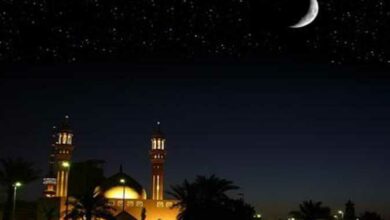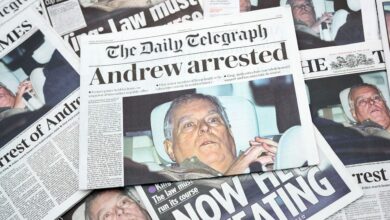Ousted Egyptian President Hosni Mubarak was assessed by British Foreign Office officials as dim but "free of any taint of corruption" before he took power in 1981, according to UK government files released on Friday.
British Prime Minister Margaret Thatcher was told by officials that Mubarak was "the coming man", enjoyed a good reputation but was "no intellectual", according to The Daily Telegraph newspaper, citing files released after 30 years and held in Britain's National Archives.
A note from earlier in the year said Mubarak was likely to take over from president Anwar Sadat should anything happen to him. Sadat was assassinated in October 1981.
Lord Carrington, the Foreign Secretary, urged Mrs Thatcher to follow up an informal visit with a full official visit, adding that he had “on a number of occasions expressed a wish to visit the Farnborough Air Show… and retains considerable interest in Egyptian arms purchases.”
The note added that “He [Mubarak] is no intellectual but is always friendly and cheerful. His repeated travels abroad have enabled him to rub shoulders with many international statesmen. While he is in no way profound and still apt to express simplistic views, he has become an experienced and accomplished political operator.”
The note continues: “His affable exterior evidently conceals a degree of ruthlessness since it seems likely that he has conducted some successful political infighting to maintain his position.
“He has succeeded in ousting or at least surviving all other prominent figures in the government or armed forces. Nevertheless his reputation is free of any taint of corruption or malpractice and he is not thought to have made many enemies.”
The Foreign Office said Mubarak “allegedly speaks Russian as well as English” and his two children spoke English as did his wife.
“They make up an attractive and amusing family who obviously enjoy good living and make good company,” the note said.
The memo went further, to show Mubarak’s views concerning Russia, where he took training courses in navigation between 1959 and 1961.
“Despite his long previous association with the Russians, he has been critical of them in private and had appeared eager to improve relations with the Royal Air Force and to buy British equipment,” the briefing said, but added that he “had displayed at least equal enthusiasm for French equipment.”
The 83-year-old Mubarak resigned on 11 February this year, after three decades of autocratic rule, following a popular uprising in which more than 6,000 people were also injured.
He is now on trial, charged with complicity in the killings of some 850 people during the protests that overthrew him.
Thatcher was also warned not to mention his Welsh in-laws — Suzanne Mubarak's mother was a Welsh nurse — unless Mubarak did first.
“Her [Suzanne’s] British relations, however, should not be referred to unless mentioned by the Mubaraks themselves. It is thought they may want to play the connection down.”
“She is fond of the ballet and will be disappointed that the party could not arrive in time for an evening at the Royal Festival Hall to see ‘La Sylphide’,” the briefing said.
As for the family ties, the memo said that “The Mubarak family is close,” adding that the two sons, Alaa, then aged about 20, and Gamal, then aged about 16 and later groomed as his father’s successor, were both studying economics at the American University in Cairo.
The note added that Gamal was "said to be particularly intelligent, having recently started there.”
"The boys are interested in waterskiing, football and tennis and popular music,” it concluded.




